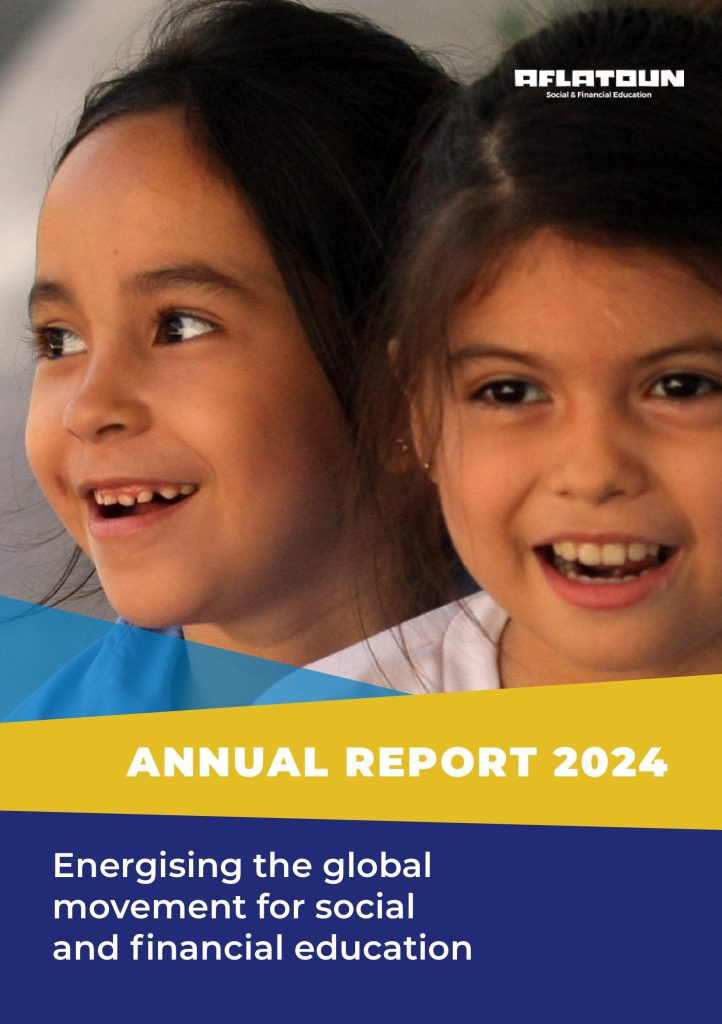The Ficohsa Foundation has implemented the Aflatot programme in Honduras since 2015. Now, more than 9,000 children are participating in the programme and more than 45,000 parents, family members and community members are actively involved.
While the organisation has only been in partnership with Aflatoun since 2015, it has been operating since 1998 to support early childhood education in Honduras. Since then, the foundation has focused on supporting vulnerable communities and increasing the reach, quality and innovation of education in the country.
Their flagship programme, ‘Educando Nuestro Futuro’ (Educating Our Future), was implemented under the umbrella of the Aflatoun International Network with an aim to raise the economic and environmental awareness of young children. Currently, 149 educational centres across Honduras, Panama, Guatemala and Nicaragua are participating in the programme.
In 2015, the foundation integrated the ‘Aflatot’ curriculum into their current pre-school educational practices — which are supported by a partnership with ChildFund Honduras and promoted by the Secretaría de Educación de Honduras (Ministry of Education of Honduras).
A ‘Pre-Basic Education Centre’ in Lempira, Honduras facilitates various Aflatot activities for more than 100 girls and boys between 4-5 years old. In one activity, children designed and decorated personal piggy banks from recyclable materials, which promoted the concept of savings in their families. Children become further engaged in the programme during visits from the Aflatoun mascot and learned to protect the environment through school gardening acitivies.

As part of the Aflatot Programme, the centre installed a recycling point and now encourages children to collect plastic bottles, cans, newspapers and papers. These materials are then sold to local recycling centres and profits earned are collected and saved. Additionally, an annual Aflatot Fair is organised where food, donated clothing and artwork created by the students are sold. The money raised by the event are then used for the development of more projects in the educational centre.












